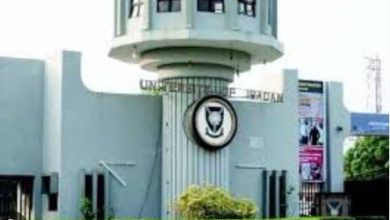
- This year has brought a barrage of emergencies across the country that have required the National Guard—the coronavirus pandemic, hurricanes, wildfires and a wave of street protests.
This year has brought a barrage of emergencies across the country that have required the National Guard—the coronavirus pandemic, hurricanes, wildfires and a wave of street protests.
Now those troops are preparing in case they are needed once again, this time for potential violent unrest in the wake of the election.
Communities are bracing for protest regardless of the election’s outcome. If demonstrations turn violent and overwhelm local police, governors will almost certainly call out their states’ National Guard.
Under federal law, it is the Guard, not active-duty military, that can enforce order on domestic soil.
It has already happened dozens of times this year in cities across the country. States are already on alert for violence.
On Monday, Governor Charlie Baker of Massachusetts ordered 1,000 members of the National Guard to be on standby in case of turmoil following Tuesday’s election.
And in Oregon, Governor Kate Brown declared a state of emergency for the Portland area, citing concern for potential violence surrounding the election.
Under the plans, the Oregon State Police and the Multnomah County sheriff will take over management of public safety in the city, and Brown said she has directed the National Guard to have members trained in crowd control to be on standby.
“We know that there are some people who might use peaceful election night protests to promote violence and property destruction, ” Brown said Monday. “That behaviour is not acceptable.”
Hundreds of National Guard troops already have been called up in non-law enforcement roles, to assist states where the ranks of poll workers have been depleted by the coronavirus pandemic.
Those troops are doing cybersecurity and routine election tasks like opening mail-in ballots.
As of last week, 10 states had activated the National Guard to help with election tasks, and 14 more are expected to activate troops this week.
New Jersey and Wisconsin have both called up hundreds of citizen soldiers and airmen to work the elections.
In both states, the troops helping out are wearing civilian clothes so that voters won’t be alarmed by seeing camouflage uniforms at the polls. “It creates a sense of normalcy, ” said Maj. Joe Trovato, a spokesman for the Wisconsin National Guard. “We’re not trying to alarm anyone; we are just trying to support the election.”
But in a year that is anything but normal, with the electorate sharply polarised, the president warning supporters of a stolen election, and gun sales through the roof, states are bracing for violence that may overwhelm local law enforcement and bring uniformed military troops into the streets.
Legal experts say the election may complicate the response because the president has broad discretion to sidestep legal restrictions by declaring an insurrection, which would allow him not only to take control of state National Guard troops, but also to deploy the Army or Marines.
If the president decides unrest rises to the level of insurrection, there is little Congress or the courts can do to stop him, legal experts say.
“The law is so broadly written that the president gets to decide what’s an insurrection, and there is not much local authorities or anyone else can do to stop it, ” said Rachel VanLandingham, a retired Air Force lieutenant colonel who now teaches national security law at Southwestern Law School in Los Angeles.



